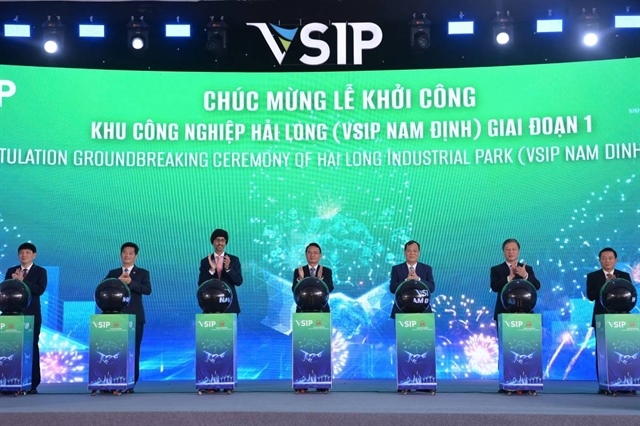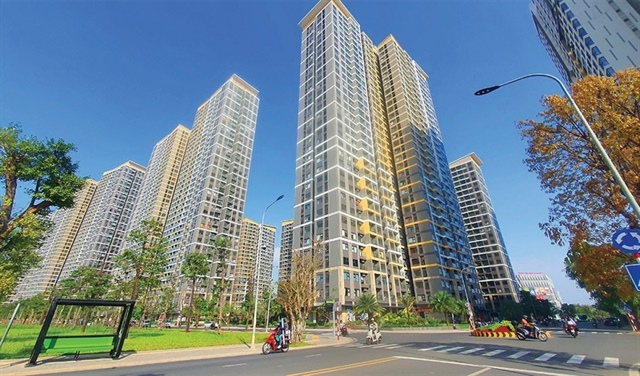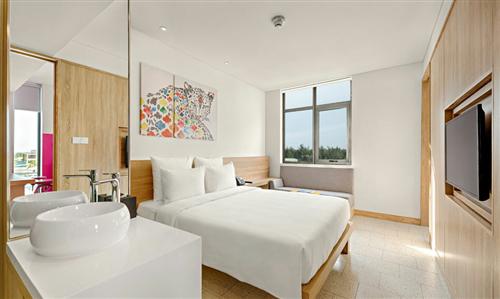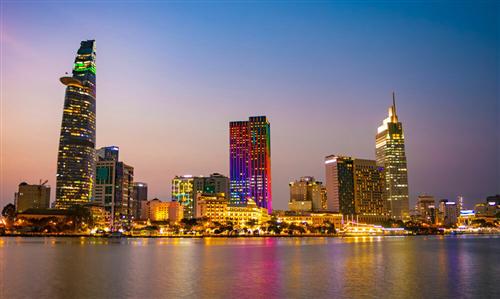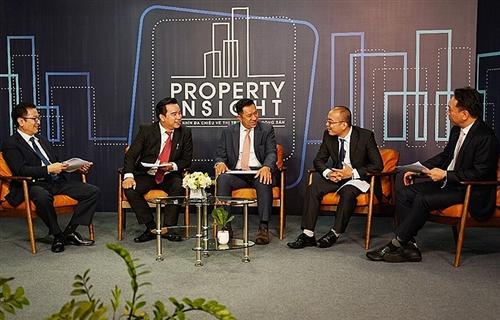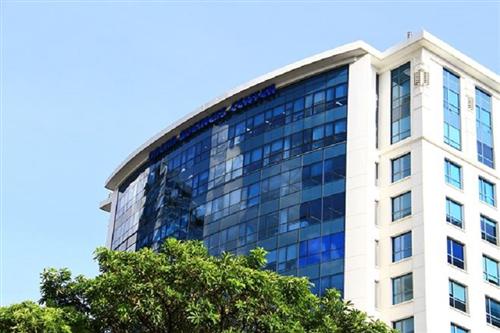Rising tourist arrivals in Ba Ria-Vung Tau underline need for recreational properties
Rising tourist arrivals in Ba Ria-Vung Tau underline need for recreational properties
Given the surging demand for tourism in Ba Ria-Vung Tau, especially during major holidays, the hospitality sector may soon find itself overloaded.
The province is in great need of quality recreational properties.
The number of tourist arrivals has been on the rise over the years.
The recent Lunar New Year holidays saw a surge in the number of visitors to coastal cities, especially Ba Ria-Vung Tau.
Statistics from the province’s tourism authorities showed that the number of arrivals at tourist sites, hotels, beaches, and leisure centres as of January 28 was 680,000, a year-on-year increase of 22.6 per cent, generating VND474 billion ($20.6 million) in revenues, up 24.7 per cent.
According to representatives of local tourism companies, the occupancy rate at hotels in Ba Ria-Vung Tau was 80-100 per cent during the six-day holiday.
Room bookings for weekends currently account for 60 per cent of the occupancy rate, not to mention walk-in visitors.
During holidays, visitors come to Ba Ria-Vung Tau in great numbers. Most of them are families and individuals coming from the south-eastern and Central Highlands regions. Instead of leaving within a day, an increasing number of visitors now choose to lodge in the province. On these occasions, Ba Ria-Vung Tau attracts a significant number of foreign visitors and overseas Vietnamese who require premium services.
Ho Tram and Xuyen Moc attract lodgers by the droves.
According to a report by the Department of Culture and Information of the province’s Xuyen Moc District, in 2019 the district posted revenues of VND1.841 trillion ($80 million), up 23 per cent from the previous year.
Ho Tram is a top site for premium recreational properties thanks to its more than 30 kilometres of beautiful coast, virgin forests, and diverse eco-system. The problem currently facing Ho Tram, however, is the shortage of high-quality lodging facilities. The supply of lodging services has yet to match demand, especially during major holidays when there is a serious lack of premium lodging.
Growing need for recreational projects
According to the development master plan of Ba Ria-Vung Tau’s tourism sector until 2025, the province will develop high-quality tourism to basically transform the economic structure and make a significant contribution to the development of tourism in the south-eastern region and Vietnam as a whole.
Tourism development in Ba Ria-Vung Tau is being fostered by the Government.
With its excellent infrastructure and transport connectivity, Ba Ria-Vung Tau will become a focus of tourism in the southern region.
According to the 2030 master plan of the Ho Chi Minh City region approved by the government, Ba Ria-Vung Tau will simultaneously build a number of highways: the Ben Luc-Long Thanh Highway connecting the western region with Dong Nai and Ba Ria-Vung Tau, the 75km Bien Hoa-Vung Tau Highway connecting the province with the future Long Thanh International Airport, and the Asian Highway network besides the Bien Hoa-Vung Tau railway, Ho Tram Airport, an undersea tunnel connecting Can Gio and Vung Tau, and many others.
For Xuyen Moc District, the province has also prioritised the development of world-class marine tourism products along with high-quality complementary lodges and services to attract high-spending visitors in Ho Linh, Ho Coc, and Ho Tram.
According to the land use master plan for 2020-30, some 5,000 hectares of land will be earmarked for the development of recreational tourism zones combined with leisure and entertainment in Ho Tram.
Experts said properties in Ba Ria-Vung Tau in general and Ho Tram in particular are beginning to rise in preparation for the next stage of the imminent boom.
A rise in the price of properties in Ho Tram is totally possible. This is an opportunity for pioneering visionary investors to take preemptive steps and seek big profits from projects with potential.
The potential of recreational properties is growing stronger as big players enter the market. The most prominent player is Novaland Group. In 2019 this developer unveiled plans for the Novaland Ho Tram Tourism, Recreation and Entertainment Complex.
With an area of about 1,000ha, the complex, which will be developed in more than 10 phases, including diverse second home product lines like street houses, villas and shophouses beside the recreational and leisure facilities, is expected to contribute additional premium tourism products to the province.
NovaWorld Ho Tram utilises the pristine natural setting of Ho Tram and harmoniously combines forests and the sea to create a classy recreational destination.
In 2019 the first two phases of the project, The Tropicana and Sakura Beach, were introduced to prospective customers.
In 2020, as part of the province’s tourism development strategy and with improving infrastructure, NovaWorld Ho Tram will continue to launch subsequent phases. The project is considered by investors as leading the recreational property trend by defining a new style in recreational tourism in the southern market.
Own a tropical garden villa at The Tropicana NovaWorld Ho Tram from only VND888 million ($38,600).
Get an additional spring of fortune of up to 100 taels of gold or a chance to win an apartment at NovaBeach Cam Ranh Resort & Villas.


